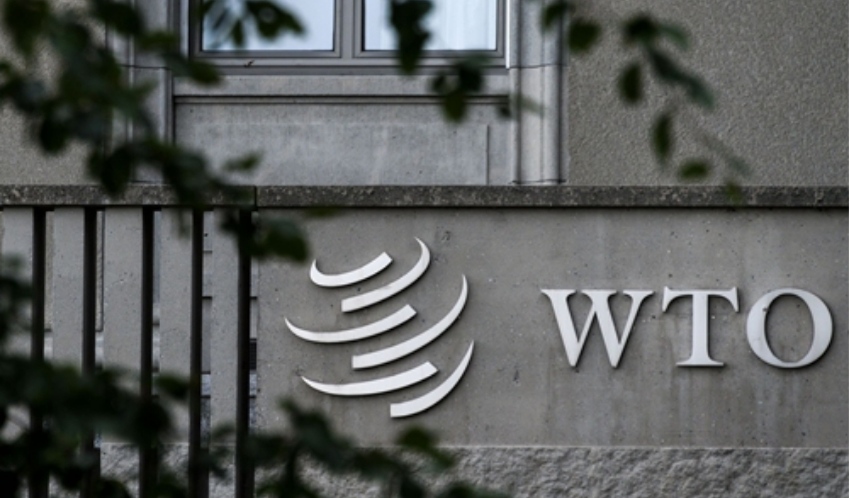WTO Negotiators See Progress
Key texts on fishing, COVID-19 vaccine patent finalized

A sign of the WTO on its headquarters in Geneva
Long-sought WTO agreements on fisheries subsidies and a COVID-19 vaccine patent waiver moved a step closer to completion Saturday after negotiators finalized texts for ministerial review, but significant obstacles remained in hammering out a final deal.
Diplomats have been in round-the-clock talks to hammer out texts on several thorny topics before the WTO’s first high-level meeting in five years, where trade ministers and officials from 164 countries have four days starting Sunday to try and get the negotiations across the finish line.
The global trade body announced in the early hours Saturday that a draft text on a long elusive deal banning subsidies favoring overfishing had been handed over to the ministers.
They will be tasked with ironing out the final sticking points toward a deal decades in the making.
The success of WTO’s 12th ministerial conference will largely hinge on whether they succeed.
“Not every issue has been resolved. Indeed, this is a draft agreement and in this draft there remain some issues that members have not agreed to yet,” acknowledged Colombian Ambassador Santiago Wills, who chairs the WTO fisheries subsidies negotiations.
But he said months of intense negotiations had made it possible to present “a clean solution” to some issues that had long “appeared intractable.”
The WTO takes decisions by consensus, making agreements all the harder to reach.
Global fisheries subsidies are estimated at between $14 billion and $54 billion a year, according to the body.
It is widely agreed that action is needed to protect a crucial resource that millions of people around the world depend on for their livelihoods.
WTO members have for the past 20 years been discussing the need for a deal banning subsidies that contribute to illegal and unregulated fishing, as well as to overfishing.
Wills noted “significant progress” on the tricky issue of “territoriality,” with the draft text ensuring that a WTO panel of experts would not be called upon to decide who has jurisdiction over disputed or overlapping territorial claims.
Progress had also been made on the issue of fuel subsidies, and on the so-called special and differential treatment for developing countries, long a key stumbling block, he said, hailing a “considerable narrowing of differences.”
Special treatment for the poorest countries is widely accepted but demands from some self-identified developing countries for exemption from subsidy constraints, including large fishing nations like India, have been difficult to swallow for some.
This is a good progress , otherwise India would have been forced to police its EEZ and apprehend and prosecute hundreds of poaching vessels , a majority of which are from China.




